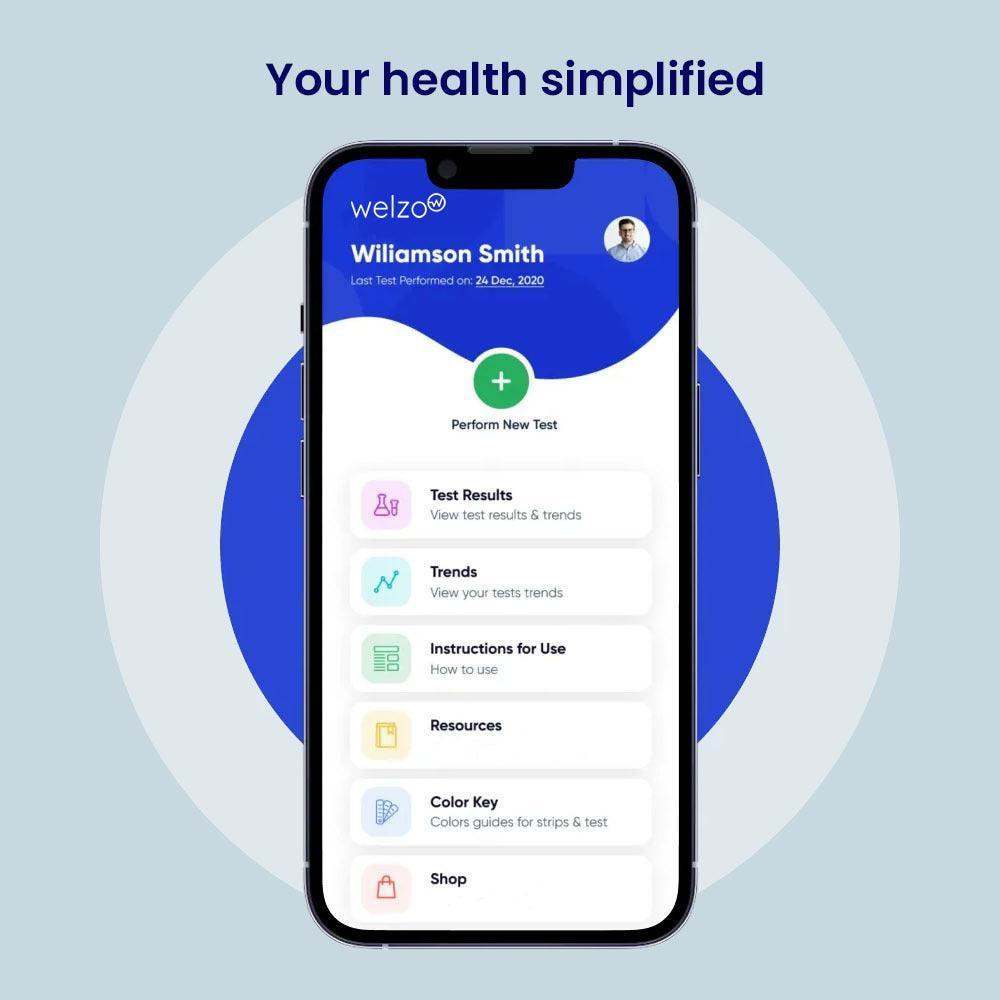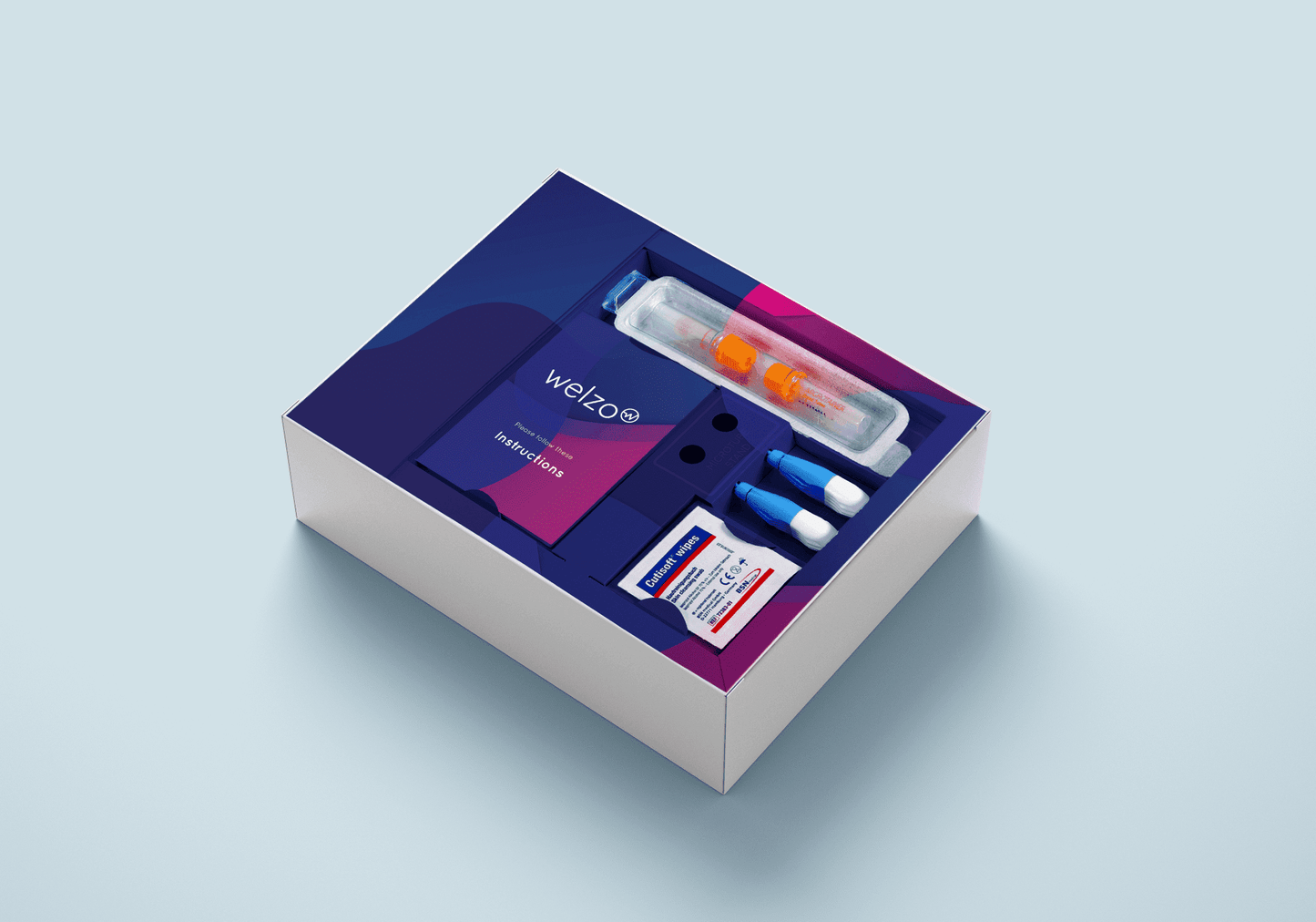Health and Lifestyle Home Blood Test
The Welzo Health and Lifestyle Blood Test is the most comprehensive test on the market, using cutting-edge technology to identify how you can improve your health.
- Diet
- Liver Health
- Kidney Health
- Cholesterol Levels
- Risk Assessment
- Muscle Health
- Inflammation
- Iron Levels
- Nutrition Tips
The UK's Highest Rated Home Testing Provider
- Biomarkers
- Information
Inflammation - CRP
Liver Health - Alanine transferase
Liver Health - Alkaline phosphatase (ALP)
High-density lipoprotein (HDL)
Protein - Globulin
Total Protein
HDL % of total
Kidney Health - Creatinine
Ferritin
Vitamin B12
Liver Health - Bilirubin
Liver Health - Gamma GT
Low-density lipoprotein (LDL)
Total cholesterol
Protein - Albumin
Triglycerides
Non HDL Cholesterol
Estimated glomerular filtration rate (eGFR)
Vitamin D
Muscle Health - Creatine kinase (CK)
What is this test for?
Additional Insight from Dr Sameer Nakedar, MBBS, MRCGP, PGCert
Why it's important to check your health
Anytime you have a change in lifestyle or health, it is important to ensure your body is properly functioning. With our Health and Lifestyle Blood Test, you'll be able to have a comprehensive check of your vitals and organ health. After the test, our qualified doctors can recommend treatments or changes that when implemented, could be beneficial to your health and everyday life.








How to take your Welzo Test
You're one step closer to discovering a healthier you! Taking your Welzo test from the comfort of home is simple and straightforward. Click the link below to learn more about how it works.


























 Rated Excellent by 26,523+ Reviews
Rated Excellent by 26,523+ Reviews